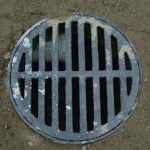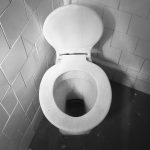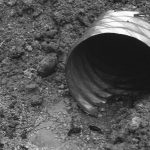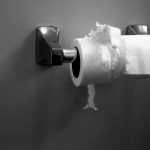Dealing with a leaking washing machine can be a frustrating and inconvenient experience for homeowners. As your dedicated plumbing partner, we understand the importance of a properly functioning washing machine in your daily routine. In this comprehensive guide, we’ll walk you through the common reasons behind washing machine leaks, providing valuable insights to help you identify, troubleshoot, and address the issue effectively.
Understanding the Basics
In the realm of washing machine leaks, understanding the basics is crucial for homeowners seeking to troubleshoot and address the issue promptly. Here, we delve into key aspects to consider:
- Check Hose Connections: The inlet and outlet hoses of your washing machine are lifelines that supply and drain water during each cycle. A common source of leaks is loose or damaged hose connections. Inspect these hoses thoroughly for wear, tear, or any signs of deterioration. Ensure that connections are tightened securely to prevent water seepage. If hoses show visible damage, replacing them is a cost-effective solution.
- Inspect the Door Seal (Gasket): The door seal, also known as the gasket, plays a vital role in maintaining a watertight enclosure. Over time, the rubber gasket may wear out, leading to leaks. Regularly examine the seal for tears, cracks, or mold accumulation. If you notice any issues, replacing the door seal is a relatively straightforward solution to restore the watertight integrity of your washing machine.
- Examine the Detergent Dispenser: Leaks can emanate from the detergent dispenser, often due to clogs or malfunctions. Remove the dispenser tray and clean it regularly to prevent soap buildup or debris that might impede proper functioning. A clean and unobstructed detergent dispenser ensures smooth detergent flow and minimizes the risk of leaks.
- Check the Water Pump: The water pump is a critical component responsible for draining water from the washing machine. A malfunctioning pump can contribute to leaks. Inspect the pump for visible damage or blockages, and listen for unusual noises during the drain cycle. If issues persist, seeking professional assistance to replace the water pump is advisable.
- Inspect the Tub Seal: If water is pooling beneath your washing machine, a faulty tub seal may be the culprit. The tub seal, located between the transmission and the outer tub, can wear out over time. While replacing the tub seal may require professional expertise, identifying and addressing this issue promptly can prevent further water damage.
- Evaluate the Water Inlet Valve: The water inlet valve controls the flow of water into the washing machine. A malfunctioning valve can lead to leaks. Inspect the valve for visible cracks or signs of wear. If necessary, professional plumbing services can assess and replace the water inlet valve, ensuring proper water regulation during each cycle.
By understanding these fundamental aspects of washing machine leaks, homeowners can embark on a proactive journey to troubleshoot issues and prevent potential water damage. In our next section, we will explore advanced troubleshooting steps for those seeking a more in-depth approach to resolving washing machine leaks.
Preventive Maintenance Tips
To avoid future washing machine leaks, consider implementing the following preventive measures:
- Regularly Clean and Inspect Hoses: Ensure that the inlet and outlet hoses are free from debris, lint, and soap residue. Clean them periodically to prevent clogs and leaks. Look for any signs of wear, cracks, or loose fittings, and replace hoses as needed.
- Inspect and Clean the Door Seal: Regularly examine the rubber door seal for any visible damage, such as tears or mold growth. Wipe down the seal with a damp cloth to remove any soap scum or debris. Keeping the door seal clean and intact will help maintain a watertight seal during each wash cycle.
- Clean the Detergent Dispenser Tray: Remove the detergent dispenser tray and clean it thoroughly to prevent any buildup of detergent, fabric softener, or debris. A clean dispenser ensures proper product distribution and reduces the risk of leaks.
- Check for Excess Suds: Using the right amount of detergent is crucial to preventing excess suds, which can lead to overflow and leaks. Follow the manufacturer’s guidelines for detergent usage, and consider using high-efficiency (HE) detergents for front-loading machines.
- Avoid Overloading the Machine: Overloading the washing machine puts extra stress on its components and can lead to leaks. Follow the manufacturer’s recommendations for load capacity, and distribute the clothes evenly to prevent imbalance during the spin cycle.
- Schedule Professional Maintenance: Periodically schedule professional maintenance services to keep your washing machine in top condition. A qualified plumber can inspect internal components, such as the water pump, tub seal, and water inlet valve, and address any potential issues before they escalate.
- Monitor Water Inlet Valve: Keep an eye on the water inlet valve for signs of wear or damage. If you notice any issues, such as slow water fill or leaks around the valve, consult a professional plumber for inspection and replacement if necessary.
- Inspect and Clean the Drain Pump: The drain pump is responsible for removing water from the machine during the drain cycle. Check for any obstructions or foreign objects that may hinder its performance. Cleaning the pump regularly can prevent leaks and ensure proper drainage.
- Maintain Leveling and Stability: Ensure that the washing machine is properly leveled and stable on the floor. An unbalanced machine can cause excessive vibrations during the spin cycle, potentially leading to leaks. Adjust the leveling feet as needed to maintain stability.
- Address Issues Promptly: If you notice any unusual sounds, leaks, or performance issues with your washing machine, address them promptly. Delaying repairs can lead to further damage and increased repair costs.
- Examine the Floor Underneath: Leaks might not always originate directly from the washing machine. Check the floor beneath the appliance for signs of water damage or mold growth. If you notice any, it could indicate a leak that requires immediate attention. Addressing floor damage promptly is crucial to prevent more extensive issues like structural damage or mold infestations.
- Verify Proper Leveling: An unlevel washing machine can cause water to pool to one side, leading to leaks. Ensure that your washing machine is properly leveled by adjusting the feet. Use a bubble level to confirm that the appliance is evenly balanced. Correcting any imbalance can prevent future leaks and ensure the longevity of your washing machine.
By incorporating these preventive maintenance tips into your routine, you can extend the lifespan of your washing machine and minimize the risk of leaks.
Importance of Regular Inspections
The importance of regular inspections for household appliances, particularly for items like washing machines, cannot be overstated. These routine checks play a crucial role in maintaining the optimal performance, safety, and longevity of your appliances. When it comes to washing machines, several key reasons highlight the significance of regular inspections:
- Preventive Maintenance: Regular inspections serve as a form of preventive maintenance. By identifying and addressing potential issues before they escalate, homeowners can avoid major malfunctions and costly repairs. This proactive approach helps extend the lifespan of the washing machine and ensures that it operates efficiently over time.
- Early Detection of Problems: Appliances, including washing machines, may develop issues over time due to wear and tear. Regular inspections allow homeowners to catch these problems at their early stages. Detecting issues early means they can be addressed promptly, preventing them from turning into major breakdowns or causing damage to other components.
- Cost Savings: Timely identification and resolution of issues during routine inspections can lead to significant cost savings. Small problems, when left unattended, can evolve into larger and more complex issues that may require extensive repairs or even the replacement of the entire appliance. Regular inspections help mitigate these risks and keep repair costs at a minimum.
- Optimal Performance: A well-maintained washing machine operates at its peak efficiency. Regular inspections ensure that all components, from hoses to seals and internal mechanisms, are in good condition. This, in turn, contributes to the machine’s optimal performance, resulting in cleaner clothes and energy-efficient operation.
- Safety Considerations: Safety is a paramount concern in any household. Faulty appliances, including washing machines, can pose safety risks such as water leaks, electrical malfunctions, or even fire hazards. Regular inspections help identify and rectify potential safety issues, providing homeowners with peace of mind and a secure living environment.
- Preserving Home Integrity: Leaks from washing machines can lead to water damage in the home, affecting flooring, walls, and even structural elements. Regular inspections help prevent such leaks by addressing issues with hoses, seals, and other vulnerable components. This not only protects the integrity of your home but also avoids the inconvenience and cost associated with water damage repairs.
- Manufacturer’s Recommendations: Following the manufacturer’s recommended maintenance schedule is essential for preserving warranties and ensuring that the washing machine operates within specified parameters. Regular inspections align with these guidelines, helping homeowners adhere to maintenance recommendations and maintain warranty coverage.
Addressing a leaking washing machine promptly is crucial for maintaining a smooth household routine. By following the troubleshooting steps outlined in this guide, you can identify and resolve common issues causing leaks. Remember to perform regular inspections, practice preventive maintenance, and avoid common mistakes to ensure the longevity of your washing machine. If problems persist or if you require professional assistance, consult with experienced plumbers to get your appliance back in optimal working condition. A well-maintained washing machine not only saves you from inconvenience but also contributes to the efficiency of your daily chores.





